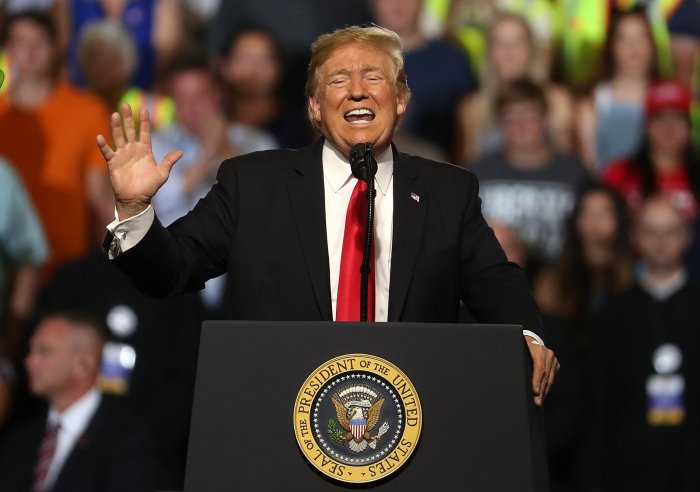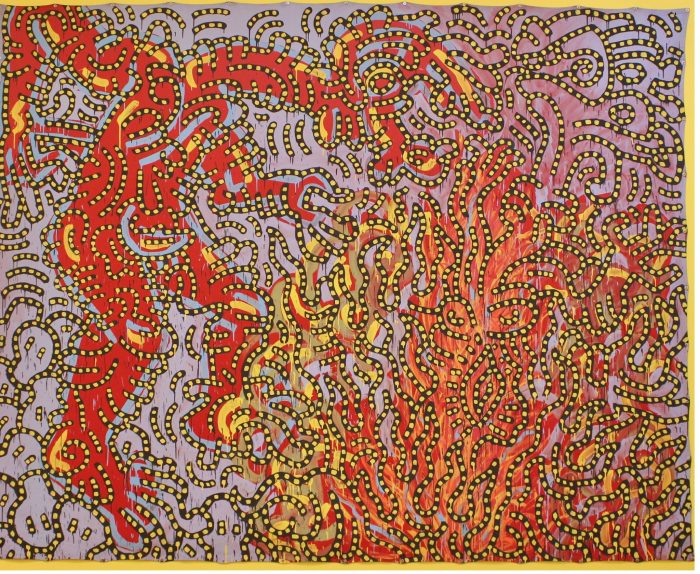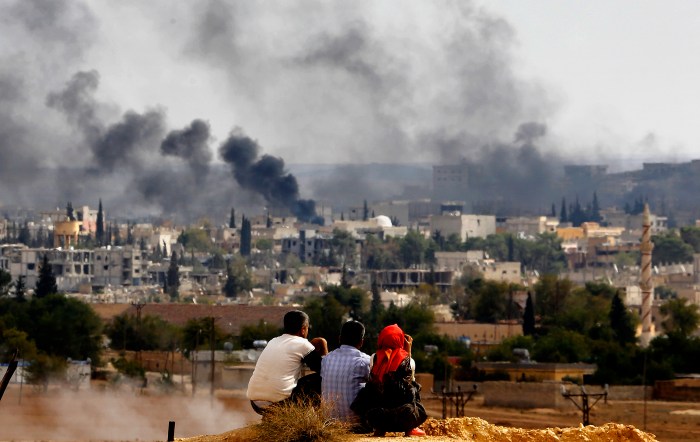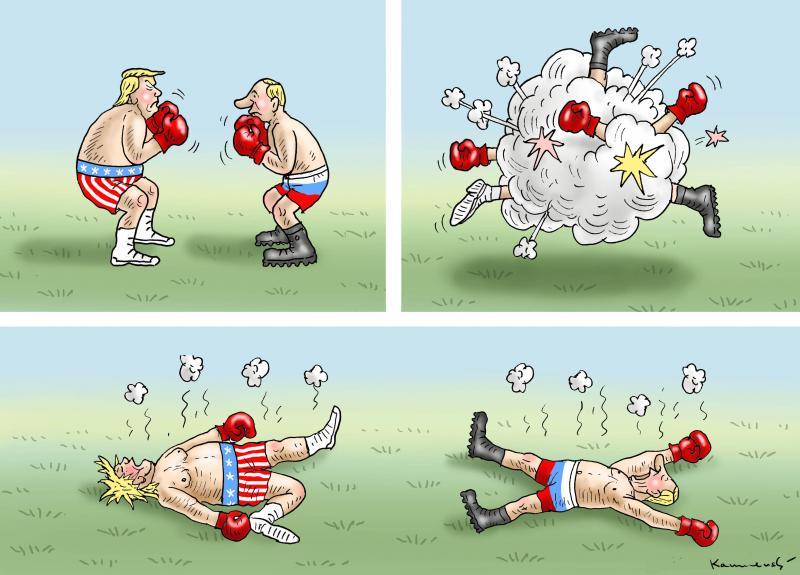The east-west confrontation bush mentions is . – The East-West confrontation, as mentioned by Bush, shaped global politics during the Cold War era. This geopolitical divide, characterized by ideological and economic differences, had a profound impact on international relations, cultural exchange, and social movements.
The confrontation between the United States and the Soviet Union escalated tensions and influenced global alliances. It also contributed to misunderstandings and mistrust between East and West, shaping cultural differences and stereotypes.
1. Geopolitical Dynamics

Historical Context of the East-West Confrontation
The East-West confrontation, as mentioned by Bush, refers to the period of heightened tensions and rivalry between the United States and its Western allies on one side, and the Soviet Union and its Eastern Bloc allies on the other. This confrontation emerged after World War II and lasted throughout the Cold War era.
Examples of Conflicts and Tensions
Specific conflicts and tensions that characterized the East-West confrontation include:
- The Berlin Blockade (1948-1949): The Soviet Union blockaded West Berlin in an attempt to force the Western Allies to withdraw from the city.
- The Korean War (1950-1953): A proxy war between the United States and the Soviet Union fought on the Korean Peninsula.
- The Cuban Missile Crisis (1962): A standoff between the United States and the Soviet Union over the deployment of Soviet nuclear missiles in Cuba.
Ideological and Economic Factors
The East-West confrontation was driven by ideological and economic factors. The United States and its Western allies promoted liberal democracy and capitalism, while the Soviet Union and its Eastern Bloc allies advocated for communism and a centrally planned economy. These differing ideologies led to a deep divide between the two sides and shaped their foreign policies.
2. Impact on Global Affairs: The East-west Confrontation Bush Mentions Is .

International Relations during the Cold War
The East-West confrontation had a profound impact on international relations during the Cold War era. It led to the formation of two opposing blocs: the Western Bloc led by the United States and the Eastern Bloc led by the Soviet Union.
The confrontation created a climate of fear and mistrust, and shaped the policies of all major powers.
Role of Major Powers
The United States and the Soviet Union played a central role in escalating and de-escalating tensions during the East-West confrontation. The United States implemented the Truman Doctrine and the Marshall Plan to contain the spread of communism, while the Soviet Union formed the Cominform and the Warsaw Pact to strengthen its influence in Eastern Europe.
Global Alliances and Security Arrangements
The East-West confrontation led to the formation of various global alliances and security arrangements. The United States and its Western allies formed the North Atlantic Treaty Organization (NATO) in 1949, while the Soviet Union and its Eastern Bloc allies formed the Warsaw Pact in 1955. These alliances played a crucial role in maintaining the balance of power during the Cold War.
3. Cultural and Social Implications

Influence on Cultural Exchange and Communication
The East-West confrontation hindered cultural exchange and communication between the two sides. Travel restrictions, censorship, and propaganda created barriers to understanding and cooperation. This led to misunderstandings, mistrust, and cultural stereotypes.
Cultural Differences and Stereotypes
Cultural differences and stereotypes contributed to the divide between the East and West. The West often viewed the East as backward and authoritarian, while the East viewed the West as materialistic and decadent. These stereotypes reinforced the ideological divide and made it difficult to build bridges of understanding.
Impact on Social Movements and Ideologies
The East-West confrontation influenced social movements and ideologies around the world. The Cold War provided a backdrop for anti-war, civil rights, and anti-imperialist movements. It also influenced the development of various political ideologies, such as neoliberalism and neoconservatism.
4. Legacy and Contemporary Relevance

Lasting Impact on Global Politics and Society
The East-West confrontation has left a lasting impact on global politics and society. It shaped the structure of the international system, the balance of power, and the development of political ideologies. It also contributed to the rise of global institutions such as the United Nations and the World Bank.
Parallels and Differences with Current International Tensions
While the Cold War ended in 1991, certain parallels can be drawn between the East-West confrontation and current international tensions. The rise of China as a major power and its growing rivalry with the United States has raised concerns about a new Cold War.
However, there are also significant differences between the two eras, including the absence of a clear ideological divide and the interconnected nature of the global economy.
Potential for Renewed East-West Confrontations, The east-west confrontation bush mentions is .
The potential for renewed East-West confrontations in the future depends on a variety of factors, including the evolution of relations between the United States and China, the stability of the international system, and the rise of new global challenges. It is important to learn from the lessons of the past and work towards peaceful coexistence and cooperation between all nations.
Detailed FAQs
What were the key factors that contributed to the East-West confrontation?
Ideological differences between capitalism and communism, as well as economic competition and geopolitical ambitions, were key factors.
How did the East-West confrontation impact cultural exchange?
It hindered communication and understanding, leading to stereotypes and misunderstandings between East and West.
What is the legacy of the East-West confrontation?
It has left a lasting impact on global politics, security arrangements, and cultural perceptions.